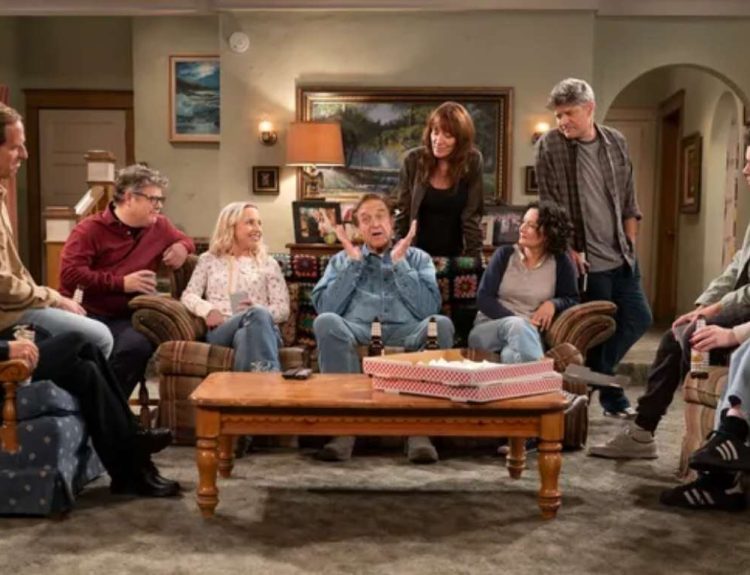The Man Behind the Legend: Who Was Chris Kyle?
Before we explore his death, let’s rewind a bit. Chris Kyle wasn’t just a Add Post ‹ Time Target — WordPress . He was a Texan, a family man, and a symbol of American grit. Born in 1974, Kyle joined the who killed chris kyle in 1999 and quickly rose through the ranks in the elite SEAL Team 3. With over 160 confirmed kills, his marksmanship saved countless lives during the Iraq War.
After retiring from service in 2009, he dedicated his life to helping veterans heal from the invisible wounds of war—post-traumatic stress, anxiety, and depression.
From Hero to Helper: Kyle’s Life After Combat
Imagine being in the thick of war and then transitioning to who killed chris kyle life—it’s like going from a battlefield to a backyard barbecue overnight. Kyle didn’t just walk away from the military; he carried the emotional weight of war with him. And rather than ignoring it, he chose to help others.
He co-founded a nonprofit to support veterans and wrote his bestselling memoir, American Sniper, which captured his experiences with brutal honesty.
A Fateful Meeting: The Day Everything Changed
On February 2, 2013, Chris Kyle and his friend Chad Littlefield took Eddie Ray Routh, a fellow veteran, to a gun range near Chalk Mountain, Texas. Kyle believed shooting would be therapeutic for Routh, who had been struggling with mental health issues after his time in the Marines.
But something went horribly wrong.
Who Was Eddie Ray Routh?
Routh, a former Marine corporal, had served in Iraq and Haiti. After his discharge, he experienced extreme psychological distress. Diagnosed with post-traumatic stress disorder (PTSD), Routh cycled through VA hospitals, grappling with delusions, paranoia, and depression.
His family and doctors had expressed concern about his erratic behavior, and he’d even been hospitalized multiple times before that fateful day.
The Tragic Shooting at Rough Creek Lodge
The shooting happened on a peaceful, sunny day. No one expected violence. Yet just hours after arriving at the range, Kyle and Littlefield were both shot multiple times with Kyle’s own firearm.
Authorities later said the two men never even had time to unholster their guns.
Routh fled the scene in Kyle’s truck and was apprehended after a short police chase. It was a crime that shocked the nation.
The Motive: Why Did Eddie Ray Routh Do It?
The question lingers: Why? Routh later told investigators he believed Kyle and Littlefield were going to kill him. He claimed they weren’t speaking to him during the ride to the range, which fueled his paranoia.
Experts at the trial offered differing opinions. The defense argued that Routh was legally insane and suffering from severe mental illness. The prosecution countered that he knew what he was doing and that his behavior after the killings showed awareness and intent.
The Trial: Justice for Chris Kyle and Chad Littlefield
In 2015, after a widely publicized trial, Eddie Ray Routh was found guilty of two counts of capital murder. He was sentenced to life in prison without the possibility of parole.
The courtroom was filled with raw emotion. Families of both victims had waited two long years for closure. Despite Routh’s claims of insanity, the jury determined that he was responsible for his actions.
Mental Health and the Military: A Larger Issue
Chris Kyle’s death wasn’t just a personal tragedy—it was a symptom of a broader issue. Thousands of veterans return from service each year with invisible scars. PTSD, depression, and trauma are rampant, and the resources to address them often fall short.
Kyle tried to fill that gap. Ironically, in trying to help Routh, he became a victim of the very crisis he was fighting against.
The Legacy Lives On: How Chris Kyle Is Remembered
Kyle’s story didn’t end with his death. His memoir became a major motion picture, directed by Clint Eastwood and starring Bradley Cooper. It sparked national conversations about heroism, sacrifice, and the cost of war.
Memorials, foundations, and tributes continue to honor his life. His wife, Taya Kyle, has become a powerful advocate for military families and veterans’ issues.
Chad Littlefield: The Forgotten Hero
Amid all the attention on Kyle, Chad Littlefield’s name often gets overshadowed. But he was a devoted friend, husband, and father who shared Kyle’s passion for helping others. He accompanied Kyle that day out of a sense of duty—to support a veteran in need.
His sacrifice deserves equal remembrance.
The Bigger Picture: What Can We Learn From This?
This tragic story reminds us that healing doesn’t happen in isolation. Veterans need support systems, and we as a society need to do better. Kyle’s death highlights the urgent need for improved mental health care, especially for those who’ve risked their lives in service.
Just as you wouldn’t send a soldier into battle without armor, we shouldn’t send them home without psychological support.
Conclusion: A Life That Echoes Beyond Death
Chris Kyle lived with courage and died trying to help someone else find peace. His life was a testament to service, and his death, a heartbreaking reflection of the silent struggles many veterans face. We owe it to him—and to all who’ve served—to remember, reflect, and push for change.


